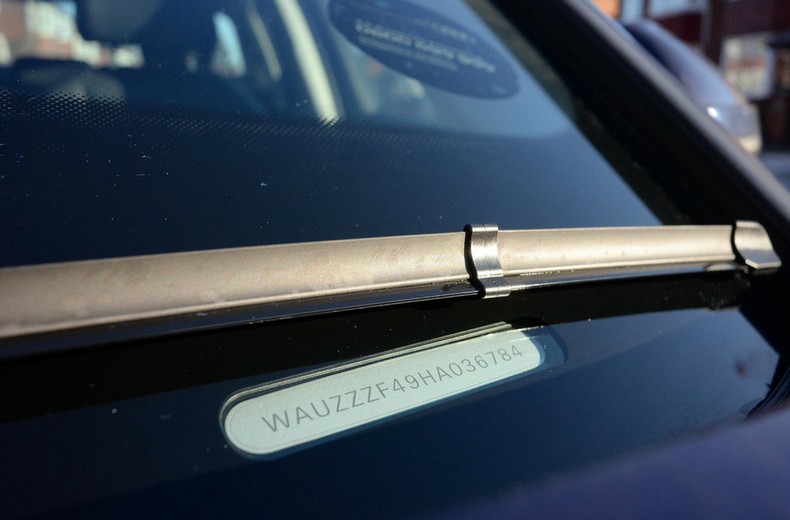A Vehicle Identification Number (VIN number), is a 17 digit number that serves as a car’s unique identity code. Every single car on the planet has its own VIN number. It’s an important part of a car. Not only because it is completely unique, but also because it can never be changed. Registration numbers and other car-related codes can be changed. However, the VIN Number is issued during the production of a car and will remain assigned to that car forever.
The VIN number is split into three parts. The first part identifies the country and the manufacturer of the car. The second part of the number relates to the vehicle description. The third part is the unique identifier for the vehicle. Car manufacturer’s use the VIN number to issue recalls over safety aspects of a car.
Why you should Check your Car’s VIN Number
The VIN Number of a car is the single most important aspect to consider when it comes to checking whether a car is legitimate or not. You can also use the VIN Number to establish the true identity of any car.
Both car manufacturers and vehicle registration agencies such as the DVLA hold databases of vehicle VIN numbers. They use them to accurately validate a car simply by typing in the number.
If you’re looking at buying a second-hand car, then it’s well worth completing a VIN number check. Any discrepancies that show after checking the VIN Number mean that there is something suspicious about the car. If that’s the case then you should walk away from the sale.
Where is a Car’s VIN Number Located?
The VIN Number is stamped to the chassis of a vehicle. Though it can be anywhere, it is often found within the engine bay. Sometimes it can be beneath the plastic trim on the driver or passenger door sill. The VIN number is often repeated throughout the car. In the UK, most models of car have the VIN displayed at the bottom of the windscreen. This is clearly visible to allow the police and other agencies to run a quick check without needing the keys for the vehicle.
Using the VIN Number when Buying a Used Car
When buying a used car, checking the VIN number is one of the most important tasks to carry out to protect yourself against fraud. Check that the VIN number on the logbook (V5C) matches the number that is stamped onto the chassis as well as on any other areas of the car. If the VIN number on the V5C does not match any of the VIN numbers stamped onto the car, then do not buy the car. A mismatch involving the VIN number is a sure sign that something is not right and you should avoid having anything to do with that car.
Some criminals clone the VIN number as part of car cloning by cutting the plate out of one car and welding it into another. Check that this hasn’t been the case, as there is no legitimate reason to do so. VIN cloning will transfer the identity of a legally registered car to a car that has been stolen or salvaged. Sometimes highly organised criminals will even create fake documents to relate to the cloned VIN number.
Other types of Identification Numbers
The VIN number on a car is sometimes referred to as it’s chassis number. These numbers are exactly the same thing. The reason it can be referred to as a chassis number is the simple fact that the number is often stamped on to the chassis during production.
Car engines also have their own identification numbers, but this is different to the VIN number. The engine is a large component of a car, so it makes sense to have it’s won number. However, engines can be swapped and changed, so it doesn’t make sense to put the VIN number on an engine.
It’s useful that engine and chassis numbers differ, because if an engine is badly damaged for whatever reason, then it means that the car doesn’t have to be scrapped. The engine can simply be replaced and a new engine with a new number put into the cart. The engine on the car will then be given a new number, along with the existing chassis number that the car has always had.

This is such an informative post! I never realized how essential a VIN number is for checking a car’s history. It’s great to have a resource like this to help ensure we’re making safe and informed car purchases. Thanks for sharing!
I bought a quashqui. I’ve received mail from dvla asking for all sorts of information about bin etc on this car. Upon checking the number in engine bay we noticed it has been removed
Can one hire a vehicle inspector before buying a expensive used car ? If the answer is yes ,where can one find independent professional inspector?
I reckon that VIN fraud is a lot more common than we think. It probably wouldn’t be too difficult to fabricate your own VIN plate. How many people would recognise if one looks slightly different anyway?
The vin number on the windscreen of my dads old audi 80 is completely different to the one stamped in the engine bay does that means that something is fishy
It could well mean that. Has your dad done an HPI check to see if anything comes up on the history?